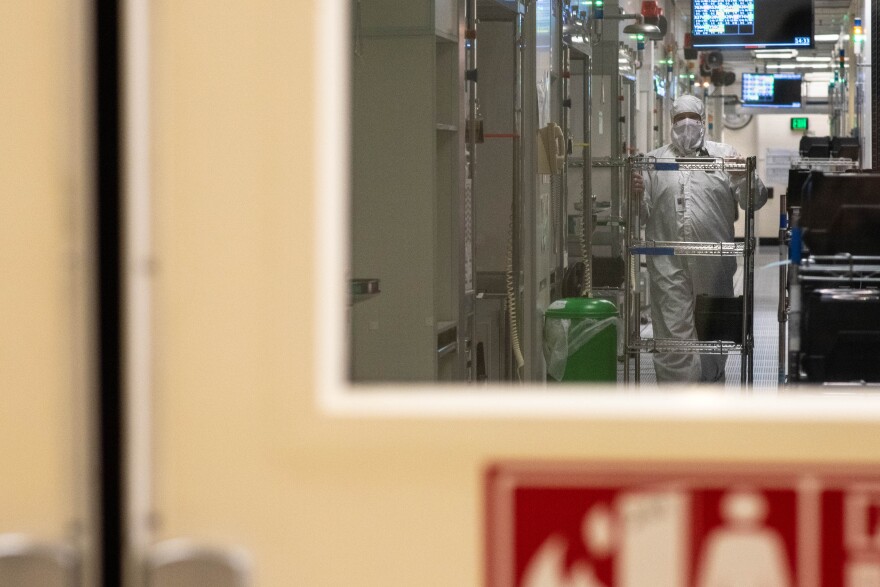After an 18-month process, Vermont utility regulators have given GlobalFoundries the go-ahead to form its own electric company. The plan is aimed at lowering operating costs at the $30 billion computer chip corporation’s Essex Junction factory.
The order issued late Friday afternoon by the state Public Utility Commission (PUC) clears the way for GlobalFoundries to form what will be known as GF Power, a utility that will purchase electricity directly from the regional grid.
In a written statement, Ken McAvey, the general manager of GlobalFoundries' Essex Junction plant, said the company is "pleased" with the PUC's decision and said it will "assist GF in making our Essex Junction site more globally competitive.”
The company first reached an agreement with its current electricity provider, Green Mountain Power (GMP), in March 2021 to separate from GMP’s service territory in order to effectively cut out the middleman and buy its electricity wholesale. GlobalFoundries is GMP’s largest customer and its Essex Junction campus consumes more power than the entire city of Burlington. In exchange for separating from GMP, GlobalFoundries agreed to pay the utility $15.6 million over several years to offset the loss of its business.
More from Vermont Public: GlobalFoundries wants to become its own utility. Is that even allowed?
GlobalFoundries’ original proposal to the PUC sought to exempt the company from several state utility regulations, most notably a requirement that utilities purchase an increasing portion of their power from renewable sources. That attracted vocal opposition from environmental groups, including the Conservation Law Foundation and AllEarth Renewables. The PUC rejected the company’s plan in February, saying it did not have the authority to allow such a move.
GlobalFoundries then came back to the commission with a new proposal to form a separate entity, GF Power, which will be subject to the state’s Renewable Energy Standard. In August, the company reached an agreement with the Conservation Law Foundation, which requires GlobalFoundries to build a solar array on its campus.
“The petition wound up with a lot more fair concessions on the part of GlobalFoundries, and the other parties,” said Jim Porter with the Department of Public Service, which represents ratepayers in utility cases. Porter added that he believes ratepayer interests are protected under the PUC’s order.
Opponents to the order have 30 days to appeal the PUC’s decision. Any appeal would be taken up by the Vermont Supreme Court. Next, GlobalFoundries must form GF Power as a limited liability company. According to the PUC’s order, the company will begin procuring electricity for the Essex Junction plant in October 2026.
The PUC decision comes days after the company announced a $30 million grant from the federal government to ramp up production of a new type of semiconductor in Essex. The company expects to soon receive additional government subsidies from the CHIPS Act, which it plans to use to make further upgrades at its 65-year-old Vermont plant.
Have questions, comments or tips? Send us a message or get in touch with reporter Henry Epp @TheHenryEpp.




